Jung said, “We humans carry memories with us that we did not acquire during our lifetime.”
Jung realized that our ancestors, in every culture and civilization, had a series of gods, each symbolizing different aspects of the psyche and human experiences. For example, power, pleasure, nurturing, commitment, order and organization, attention to emotions, meaning-making in life, and so on. Each of these had a corresponding deity in ancient myths. In ancient times, humans created myths and legends to understand the world around them and the forces that govern it.
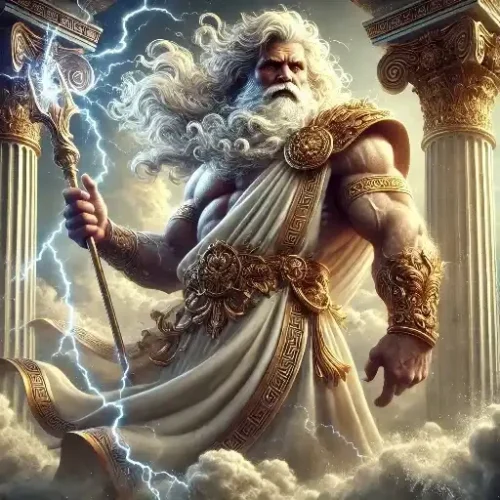
The Archetype of
Zeus
From a psychological perspective, ruling the heavens requires the power of control and logic. Men who are the rulers of their own lives, who have control over everything and succeed in doing so, possess a personality similar to Zeus. The Zeus archetype prepares individuals to live with logic. He is rational, confident, and expresses his presence and power through words. He deals with matters such as money, wealth, law, or authority and is detached from his heart and emotions. Typically, these individuals are wealthy and possess a powerful personality. They regard money and power as integral parts of their desirability.
The Archetype of
Apollo
A man awakened by the Apollo archetype easily navigates life in this world. He possesses qualities that naturally attract approval and attention from others, contributing to his success. Anything involving law and order is inherently connected to him. He reflects the Greek admiration for clarity, structure, and measurable aspects of life, as well as their aversion to abstract, shapeless, or incomprehensible matters. Such individuals are committed, rule-abiding, well-mannered, and always orderly. By aligning themselves with societal norms, they maintain their psychological and behavioral stability. They thrive in environments grounded in logic and are most comfortable dealing with issues that are rationally understandable and measurable.
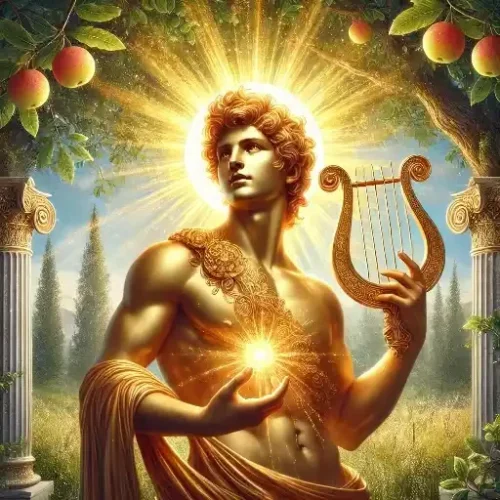
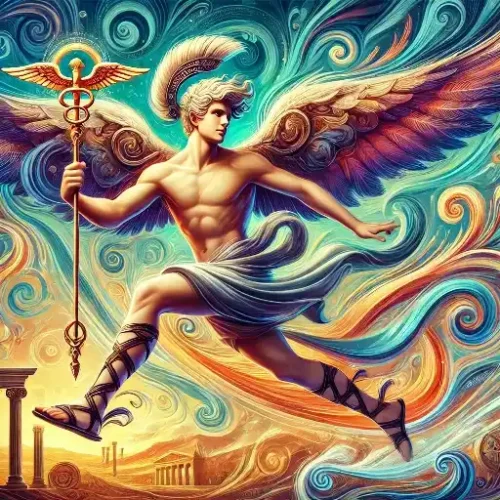
The Archetype of
Hermes
Men who embody the Hermes archetype with greater intensity are often quick-witted and dynamic individuals, moving seamlessly across various and sometimes opposing environments and contexts. The Hermes man rules over unexpected events, good fortune, coincidences, and synchronicities. He brings movement, flow, and fresh beginnings. A master of innovation and creativity, he speaks effortlessly and fluidly. Boundaries hold little significance for him, as he easily crosses them and transitions from one realm to another.
The Archetype of
Poseidon
Poseidon is the ruler of the seas and horses. With deep access to emotions and passions, Poseidon is present in poets, playwrights, musicians, and even psychologists. Generally, individuals with an emotional and passionate nature value this realm and allow themselves to express and articulate their feelings. Poseidon’s emotional temperament is one of his most renowned traits. At times, he can be moody, angry, destructive, and dangerous. Yet, he also possesses the power to calm stormy seas.

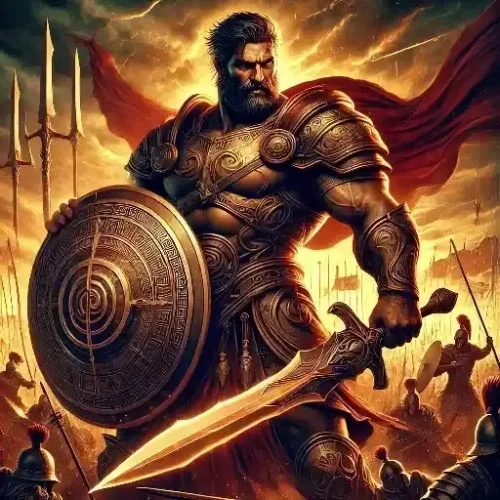
The Archetype of
Ares
The Ares man is confident, bold, active, and passionate. He often reacts before thinking things through. In various situations, he has the ability to respond quickly. These individuals typically have strong and powerful physiques. At times, without even realizing it, their muscles tense, and their fingers clench into fists. They place great importance on their physical appearance and consistently maintain their fitness. Bodybuilding is often their favorite sport. Overall, they have a strong awareness of their body language.
The Archetype of
Hades
Hades is the god of the dead and the underworld, both of which symbolize the unconscious within a person. The most prominent description of Hades is the depth and coldness of his character. Perhaps the inner pains of Hades stem from his profound nature, as he has a deep understanding of life. Many philosophers and mystics possess a strong Hades archetype. Hades symbolizes grief, sorrow, mourning, and solitude. He is reclusive and sometimes detached from the world. The Hades space is heavy and low, dark, bleak, and distinctly black. These individuals are highly introverted and reserved, possessing a profound level of understanding. They remain mostly silent, viewing matters deeply, which often gives them a sense of wise detachment. They are frequently astonished by the ignorance they observe in the world.
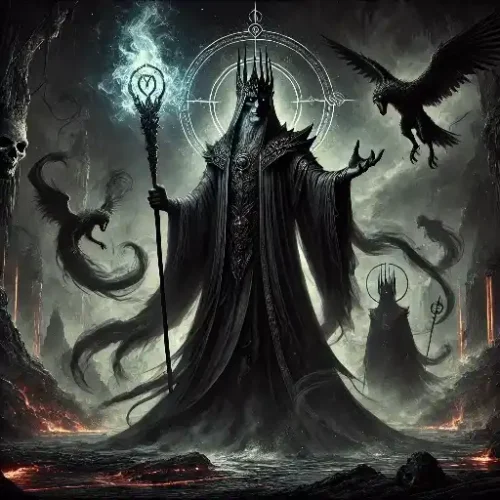
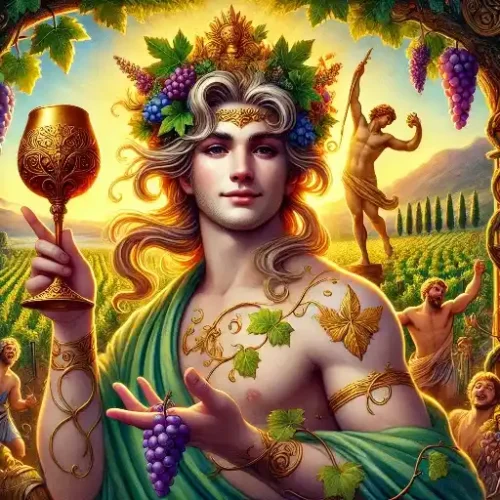
The Archetype of
Dionysus
Dionysus is an archetype that embodies both masculine and feminine tendencies. This archetype allows individuals to fully live in the present moment. They have an intense inclination toward any form of mental ecstasy, whether induced by external factors or internal experiences, and they use any means to achieve it—be it meditation or psychoactive substances. These individuals easily slip into states of trance. Drinking alcohol comes as naturally to them as drinking water. They often turn to drugs, experimenting with various types. They have a deep interest in spirituality and mysticism and are also fascinated by magic and the supernatural, sometimes actively pursuing these realms.
The Archetype of
Hephaestus
The presence of this archetype in a person reflects their deep need to create things that are both beautiful and functional. Hephaestus men are those whose hard work and sweat have built civilizations. In his workshop, he is unmatched, but like the modern individual who mistakenly equates their identity with their work, he is often less effective outside of it. Symbolizing hard and relentless work, deep sorrow, burning resentments, creative craftsmanship, innovative genius, and a commitment to human values, Hephaestus represents humanity’s profound desire to build and create something new that is both practical and beautiful.
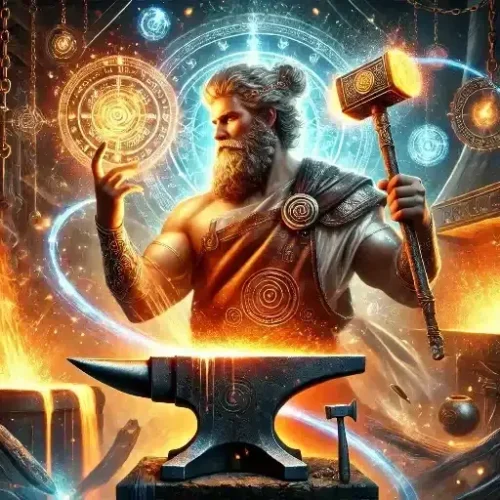
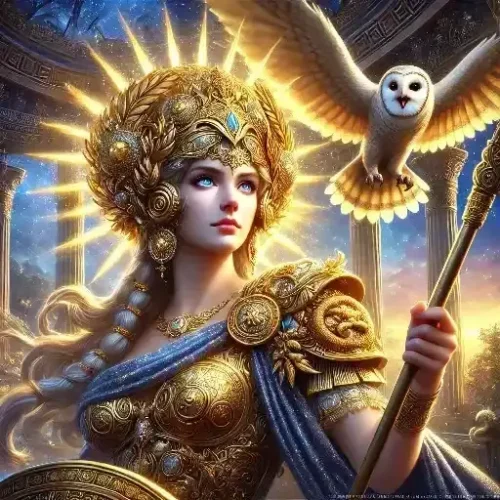
The Archetype of
Athena
Athena, known as the goddess of wisdom, was celebrated for her strategic thinking and practical solutions. As an archetype, Athena represents the personality pattern of women who are guided by their intellect rather than their emotions. Clear thinking, resilience in the face of emotional crises, and strategic planning are among her inherent traits. Athena values rational thought and considers the realm of willpower and intellect superior to instinct and nature. When Athena is present in a woman’s psyche, she becomes highly conscious of her actions and the ways to achieve her goals.
The Archetype of
Aphrodite
In individuals where this archetype is actively present, there is an undeniable zest for life. These individuals are always seen with an inner enthusiasm, engaging with life, and they enjoy connecting with others. They are constantly in love with life and all its dimensions, appearances, and aspects, never losing hope in it. They have an enduring desire for its continuation, reinvention, and creativity. Even for seemingly repetitive tasks, they bring creativity to the table and approach them as though it’s the first time they are doing them. When it comes to choosing clothing or even selecting colors for home decor, they opt for pure, vibrant, and lively hues. If something is painted in these bright, intense colors, they will choose it. At parties, they are always the center of attention, and everyone, including themselves, enjoys each other’s company. Aphrodite women are usually simple and minimalistic, with little or no makeup, but they remain attractive and lovable. This simplicity does not take away from their charm—in fact, in some cases, people become enchanted by the combination of simplicity and allure.
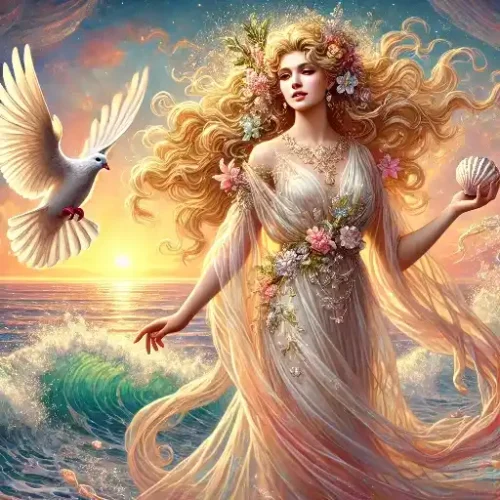
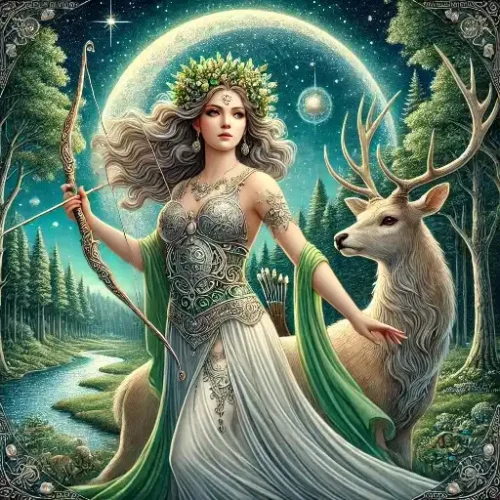
The Archetype of
Artemis
Individuals with the Artemis personality are independent and goal-oriented. They are passionate about pristine, untouched nature and feel most themselves when immersed in it. They enjoy debating with others and never back down in any situation. They have a quick, fiery temper and are always reactive, never yielding to anyone or anything, especially men. They seek out traits that are non-feminine and distinct. They despise playing the role of the weak woman. They are passionate about running and track sports. These individuals love to be free, independent, and unrestrained, and they refuse to let anyone restrict their freedom in any situation or place. If anyone tries to impose limitations on them in this regard, they will fight back and can easily destroy that person, even at the cost of destroying themselves.
The Archetype of
Hera
These individuals have a strong inclination towards marriage, partnership, and shared life, believing that the purpose of their life and personal growth is fulfilled through marriage. Loyalty, diplomacy, perseverance, and jealousy are key characteristics of this personality type. To them, their partner is the best, most beautiful, most complete, and most suitable person on earth, and they do not listen to anyone’s opinions about them.
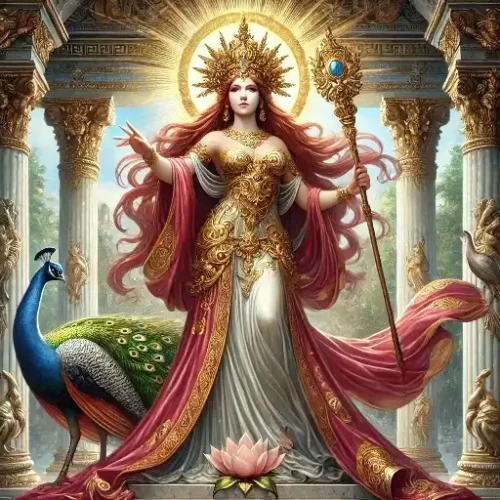
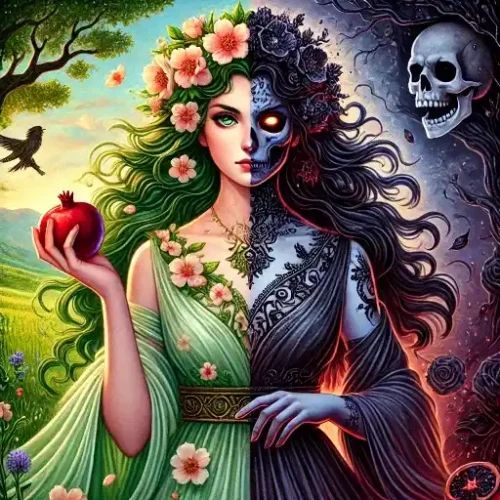
The Archetype of
Persephone
Persephone embodies maidenhood, spring, acceptance, and transformation. She symbolizes the anxiety of separation from the mother, or more broadly, the anxiety of moving from one phase of life to another, transitioning to a new life. From a psychological perspective, Persephone’s character is deep due to her journey to the underworld, and she has the potential to reach high levels of self-awareness. Persephone has two distinct aspects. As the young girl in the first stage of life, she has little desire to take action, feels no responsibility, and does not take her actions seriously. Then, as Persephone the Queen, she learns how to adapt to experiences and grow.
The Archetype of
Demeter
Demeter is the archetype of the mother and the Earth. She represents the desire for creation and nurturing through pregnancy, as well as physical, emotional, and psychological nourishment. She is the ideal mother, generous with others and sensitive to the needs of those around her. For her, the image of a mother breastfeeding her child is the most profound and elevated image of life and the most beautiful event possible in the universe. Her desire and love for having children is so strong that she easily gives birth with an incredible ease, and during childbirth, she experiences satisfaction and joy, even smiling. A Demeter woman is, above all, a mother, and in her relationships, she is incredibly self-sacrificing, supportive, and nurturing.
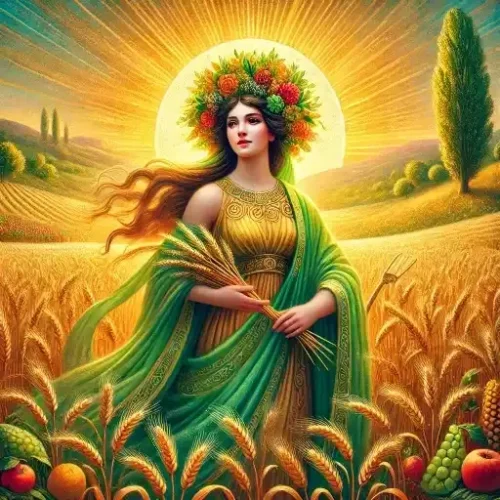
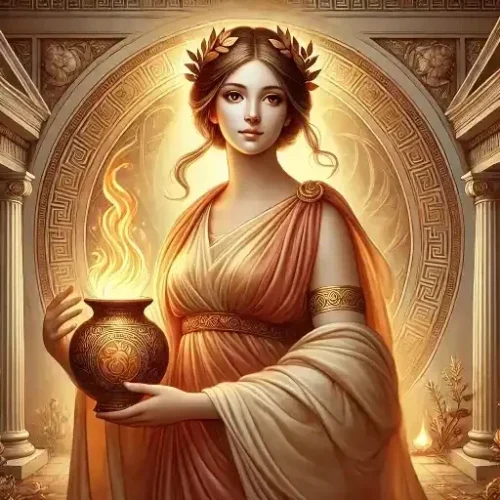
The Archetype of
Hestia
Calmness and modesty are abundant in the existential woman. Her presence promises an intimate and harmonious atmosphere. She is typically an introverted woman who enjoys solitude. She appears obedient but, deep inside, believes she is different from the people around her. In every situation, her effort is to avoid interfering in the affairs of others. As a result, Hestia is a personality without a mask. The spiritual essence in any group comes from Hestia. Hestia women are always in absolute acceptance of their life situation and feel as if they are on a spiritual journey in their self-created paradise. The home environment is sacred to them, much like a temple. The task of maintaining and caring for the home is a deeply meaningful responsibility for them. They perform household tasks as if it is the only work in the world.
The name of each myth also defined the laws that govern the universe. For example, the myth of Anahita symbolized fertility, healing, and wisdom in Iran, or the myth of Zeus symbolized power in ancient Greece. Socrates also believed that disrespecting the gods led to their vengeance and created problems for humans.
For instance, you might ignore Zeus, the god of power and foresight, and as a result, you only focus on what’s immediately in front of you. Forty years later, you look back and think, “Oh no, my life is wasted!” You were so focused on studying and working that you never created a source of income or investment for your old age. This is a form of disrespect to the god Zeus. Meanwhile, you may have dedicated your life to honoring the god Apollo, meaning your life followed a rhythm and order, with higher education and a good job.
Robert A. Johnson, a psychoanalyst in the school of Carl Gustav Jung, says: “Today we are dealing with the signs of psychological distress. We don’t know Zeus, but we have a headache. We don’t know Dionysus (the god of pleasure), so instead, we get drunk and indulge in excess.”
These myths and legendary stories are embedded in our psyche from an ancient, timeless history and unconsciously govern our lives.
According to Jung’s perspective, self-awareness, which seems to be a necessary condition for humanity, is only the tip of the iceberg. Beneath awareness, there exists a much larger realm that contains forgotten or repressed personal memories, emotions, and behaviors, which Jung and Freud refer to as the personal unconscious. Below the personal unconscious lies the vast ocean of the collective unconscious, an immense and ancient sea filled with all the images and behaviors that have been repeated throughout history. This history does not only include humans; it also encompasses life itself. As Jung says: “The deeper you go into the psyche, the wider the terrain becomes.”
Jung recognized the repetitive and universal nature of characters and events in human life. He concluded that historical myths present in different cultures symbolically transmit inner experiences to future generations, and these stories, often found in the art and literature of various parts of the world, shape the structure of our lives. In all these stories, there are a few core archetypes.
We are a collection of archetypes, a set of different personality patterns.
When we become parents,
When we become spouses,
When we love,
When we are in key jobs,
When we are sensitive and easily hurt,
When we must endure the death of a loved one,
When we love,
When we hate,
And so on.
In each of these states, we rely more on one of our archetypal personalities than the others.
What’s important is recognizing these archetypes and creating balance in the human psyche.
By understanding these ancient patterns, you gain a better understanding of the logic and philosophy of your own life. Archetypes represent the most important needs and desires of a person’s life. Recognizing them acquaints you with your hidden talents, shows you the core reasons and values of your life, and helps you relate to and understand others better.
Through testing the archetypes, you can identify your dominant and repressed archetypes within your psyche, uncover the root causes of your problems and those of the people around you, and then, through practice and self-control, balance your dominant archetypes and strengthen your repressed ones to achieve balance in all aspects of your life.